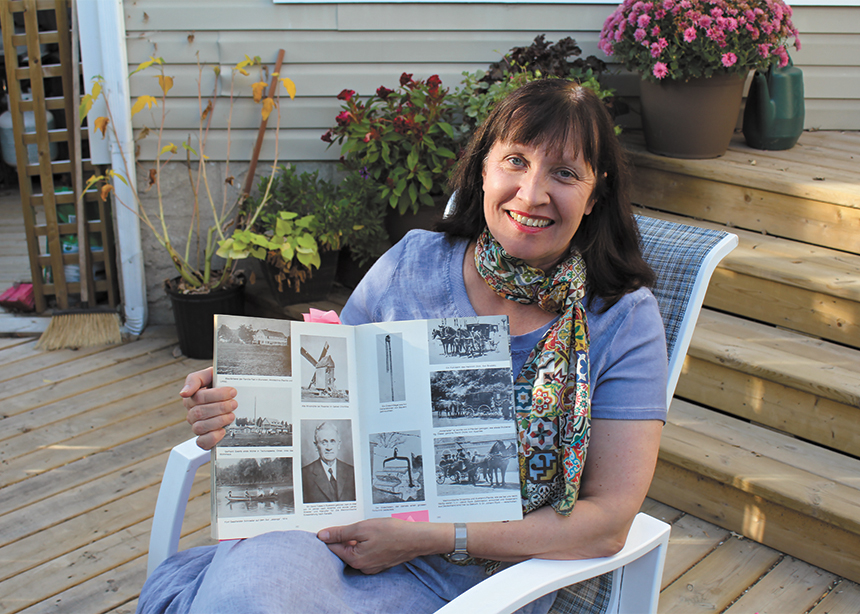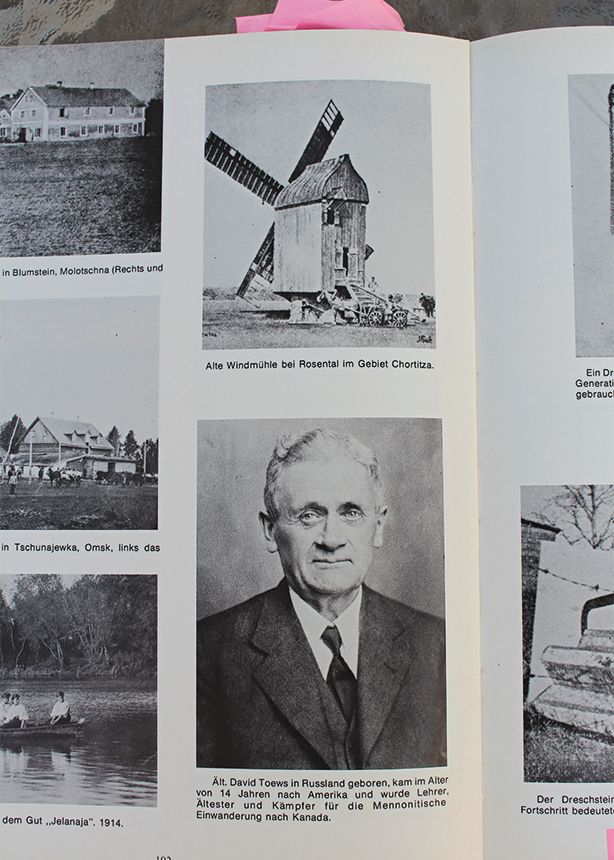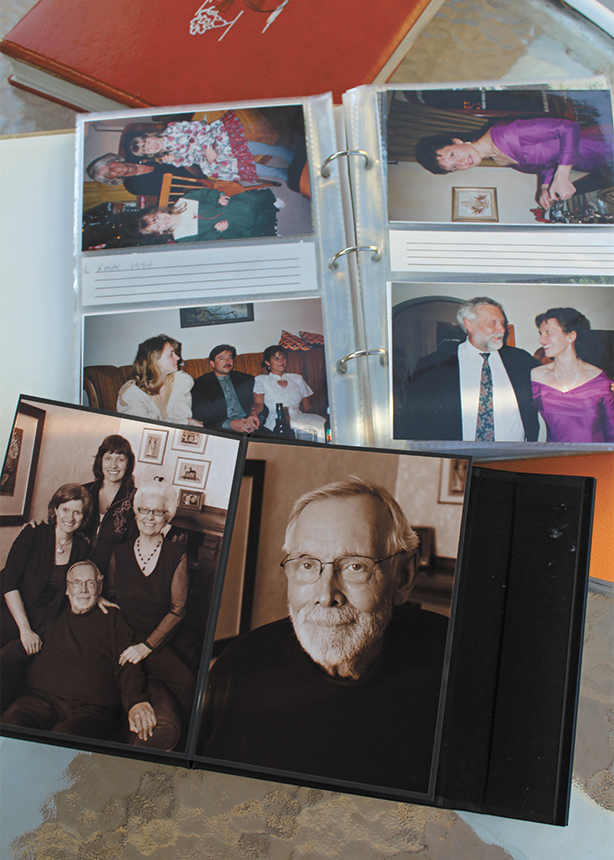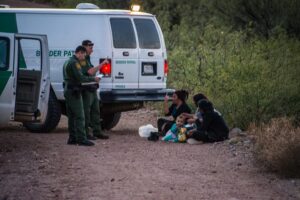It’s been almost 100 years since 1923, when thousands of Mennonites from the Soviet Union began migrating to Canada. A train tour commemorating their journey will wind across Canada in the summer of 2023 to mark the anniversary.
Ingrid Moehlmann, the event’s initiator, remembers her father’s final wish that started it all. “On his deathbed, the last thing he said to me before he slipped from consciousness was, would I please do something for this centenary,” she says.
His grandfather, David Toews, helped bring thousands of Russian Mennonites, or Russlaender, to Canada after the 1917 Russian Revolution ravaged the country with famine, epidemic and violence.
When dissent arose amongst the Canadian Mennonites on how much to support these immigrants, Toews arranged for the Canadian Pacific Railway (CPR) to pay the travel costs, putting the debt for 21,000 people in his own name. He also persuaded Prime Minister William Lyon Mackenzie King to allow the Mennonites into the country.
Toews dedicated most of his life to the project—he finished fundraising and paying off the debt six months before his death. “That was a huge, huge thing in our family,” says Moehlmann, who attends First Mennonite Church in Winnipeg.
The idea of a train tour came to Moehlmann in a dream in 2015, a year after her father passed away, and she’s been planning Memories of Migration: The Russlaender 100 Tour ever since. Going almost coast to coast, the three-week journey, organized by TourMagination, an Anabaptist-heritage travel company, will start in Quebec City on July 6, 2023 and end in Abbotsford on July 25. The trip is divided into three segments, each roughly a week long; participants can join just one or two sections or all three.
Moehlmann will lead the tour with Henry Paetkau. They are heading up the Russlaender Centenary Committee (RCC), a subcommittee of the Mennonite Historical Society of Canada. The tour will make stops in places of key historical significance to the Russian Mennonite migration, from the first landing site and quarantine station on Grosse Isle, an island near Quebec City, to the three earliest Mennonite settlements in the Fraser Valley of B.C.
Along the way, participants can join music events, visit museums, tour cities and attend a gala dinner sponsored by the CPR, among many other highlights. In Winnipeg, the Centre for Transnational Mennonite Studies will host an academic conference exploring themes of war, revolution and migration in the Mennonite experience, led by Aileen Friesen, associate professor of history at the University of Winnipeg and co-director of the Centre for Transnational Mennonite Studies.
Moehlmann is looking forward to the arrival in Rosthern, Sask., to reenact the moment when the Russlaender got off the train and broke spontaneously into song, singing, “Now thank we all our God” in German. “I’ve heard about that my whole life,” she says.
The tour will celebrate the faith of the immigrants, remember the loss of their former communities, memorialize the challenges of resettlement and acknowledge Indigenous displacement in Mennonite and Canadian history.
“We can tell our story about what took place in Ukraine and there is a lot of heartbreak and tears associated with that, but . . . we need to understand that we came to this land as settlers and therefore we are incorporated into this fabric of settler colonialism that is part of Canadian history. And we cannot get away from that. That is also part of our story and we need to acknowledge it,” says Friesen.
Travellers will explore truth and reconciliation during the tour, as they learn about the displacement of Indigenous peoples that made way for many Mennonite settlements. “We know and understand the damage that has been done through settler colonialism and it needs to be acknowledged,” Friesen says.
Recently, 450 people attended a history webinar Friesen presented in connection with the tour and people have already begun registering. Moehlmann hopes some of those will be young people. “I’m a teacher, I’m always interested in what can bring history to younger generations.” Travelling by train is expensive, so she’s exploring possible ways to include young people, like inviting individuals to sponsor them to serve as train stewards.
It’s important to commemorate the Russlaender centenary because the history is fading from many people’s memories, Moehlmann says. “I see the Mennonite world I grew up in sort of crumbling very quickly. People just don’t understand anymore, I think, because they’re many generations removed.”
For many who do remember, this story is deeply personal. Moehlmann’s grandmother and her family could not afford to make the journey to Canada after all the men in their family except one were killed, and their livelihood was lost. It was David Toews who provided the funds. “My mother’s entire family, both sides, was directly saved by this travel. It was my dad’s family who did that. . . . So for me, both sides of the story are really significant because there’s no way I would be here if one or the other hadn’t happened.”
“I’m hoping [the tour] makes people reflect on how it is we came to be here and some of the lessons learned along the way,” she adds.
Friesen says although Mennonite identity has changed significantly over the years, “that sense of community still prevails and it’ll be nice to experience that again, to experience all these different elements as a community.”
Mennonites encouraged to ‘pay it forward’ as they look back
As participants on the Memories of Migration: The Russlaender 100 Tour reflect on how they came to be in Canada, and the many people that helped their ancestors on their journeys, they will be encouraged to “pay it forward” throughout the tour. “We’re recognizing that lots of people gave us a helping hand . . . we wanted to look at doing something good with that,” says Ingrid Moehlmann, co-chair of the Russlaender Centenary Committee and initiator of the train tour. As part of the commemoration, the committee established the Russlaender Remembrance Fund through Mennonite Central Committee (MCC) Canada. Donors can choose from three areas of work that connect with the migration: MCC’s Indigenous Neighbours program to acknowledge Mennonites’ displacement of Indigenous peoples; MCC’s Ukraine program to remember the loss of their former communities; and MCC’s International Refugee Settlement program to recognize the challenges of resettlement today. MCC is a meaningful partner for this project because it was first formed in 1920 to help the Russlaender Mennonites.
—By Nicolien Klassen-Wiebe
To learn more, visit russlaender100.com. Get a taste of the tour by joining a webinar on Oct. 28, called A New Home in Canada.
Do you have a story idea about Mennonites in Manitoba? Send it to Nicolien Klassen-Wiebe at mb@canadianmennonite.org.











Leave a Reply
You must be logged in to post a comment.